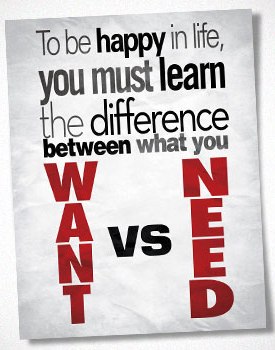Ted is the manager of a very successful business, and he’s frustrated. Whenever he asks a direct report to take on a task, he finds that his expectations aren’t met, even though he is certain there was mutual agreement on what would happen next. “We’ll have an iron-clad agreement,” he says. “But no matter what I say, I cannot get what I want.” My answer surprised him.
Why is Ted struggling to get what he wants out of his team? Because he’s a winner. At work and at home, Ted likes to win discussions. He likes to hear the other person agree with him. It feels good.
But it’s not working. Ted would get more engagement from his direct reports if he focused on learning rather than winning. If he were present and operating from his Learner/Researcher, Ted and his team just might come up with strategies and solutions they really can agree on.
Unfortunately, Ted probably won’t change. Being a winner is comfortable for him. Dealing with the world from your Knower/Judger persona is always more comfortable than operating from your L/R persona and exploring doubt. Comfort, however, gets in the way of achieving your goals.
Last month I talked about Marshall Goldsmith’s 20 bad habits for managers. These habits are behaviors that we become comfortable with based on our K/J patterns. Winning is a huge comfort zone for typical corporate managers. Yet winning is usually only adrenaline for the moment. Measured against the long-term goal (perhaps of trust, camaraderie, teamwork, harmony), winning can actually be losing.
When we aggressively press the agenda until we win, we’ve succeeded only in engaging others’ K/Js, and we probably repeat a pattern that hasn’t worked so far.
We all know people (managers, parents, coaches) who like to win. Do you like working with these folks? Or do you merely adapt to accept your one-down position? Is this in the best interest of your team’s (or your) mission? Do you sometimes let the boss get his way and revel in the result when it doesn’t work out as he or she expected? Nice feeling, huh?
I’m comfortable eating everything on my plate (charter member of the clean plate club, circa 1950). But the data suggests that exercising this behavior just for the sake of being comfortable doesn’t help me reach my goal of getting below 180 pounds.
Just as I’m confronted with the opportunity to get clear about the “clean plate” thing every time I eat food off a plate (will I meet my emotional need or obtain my weight goal of 180 pounds?), you too are frequently faced with opportunities to change. We all are. But we don’t recognize them, because we are operating in our K/J personas, which operate to guide us to do what we’ve always done without having to really think about it. And then we wonder why we’re not getting where we want to get.
We are creatures of our habits. As Pogo said, “We have met the enemy and he is us.” The first step is to recognize that what you’re doing meets some emotional need. Eating. Drinking. Winning. Losing. Not talking to strangers. Not picking up the phone and making outbound calls. Avoiding certain people.
The moment you recognize this dynamic, you have a choice. Steven Covey said it 15 years ago: “Between stimulus and response there is a space. In that space lies our freedom and power to choose our response. In those choices lie our growth and our happiness.”


